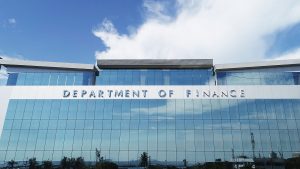THE Department of Finance (DoF) said taking money from the reserves of Government-Owned and -Controlled Corporations (GOCCs) is preferable to imposing new taxes, which it called inflationary.
“The temptation to impose additional taxes is there. But in the face of high inflation in the last two years, we chose other means of revenue generation that will not unduly burden ordinary Filipinos,” Finance Secretary Ralph G. Recto said at a forum on Wednesday.
“Our job at the DoF (is) to raise money for the government in the most cost-effective manner and make sure that it is most judiciously used and spent.”
To support this year’s funding needs, the DoF needs to collect P11.71 billion in revenue daily to support the government’s average daily spending of P15.8 billion, Mr. Recto said. This means the government has to find P4.1 billion a day to make up for the deficit.
In the first seven months, the government collected 61.04% of its P4.27-trillion revenue target for 2024.
Mr. Recto said revenue-generating agencies’ ongoing digitalization will improve collections.
“In addition, we have been inculcating tax obedience by promoting ease of payment not just through digitalization, but by showing that taxes that are efficiently collected are effectively spent,” Mr. Recto said.
The DoF raised the minimum dividend of GOCCs to 75% of their earnings, from 50% previously.
The DoF is also privatizing non-performing and idle government assets to raise additional revenue.
At the end of July, the government generated P368.8 billion in non-tax revenue, or 92% of its target.
Mr. Recto also reiterated the need to approve pending measures expected to generate around P42 billion in revenue.
These include the excise tax on single-use plastic bags, Package 4 of the Comprehensive Tax Reform Program, rationalization of the mining fiscal regime, the motor vehicle user’s charge, and the value-added tax on foreign digital service providers.
Mr. Recto also noted that the transfer of excess funds of the Philippine Health Insurance Corp. (PhilHealth) and the Philippine Deposit Insurance Corp. (PDIC) to the Treasury were approved by their respective boards.
In a DoF circular, PhilHealth and PDIC were asked to remit unused funds worth P89.9 billion and P108.9 billion, respectively.
Funding projects with additional borrowing would increase the country’s deficit-to-gross domestic product (GDP) ratio to 6.4% and push up the debt-to-GDP ratio to 61.4% this year, Mr. Recto said.
This translates to an additional P12.7 billion in interest payments every year, he said.
“In effect, we will fail to hit our Medium-Term Fiscal Program and put at risk our hard-earned investment grade ratings.”
For this year, the National Government projects a deficit-to-GDP ratio of 5.6% and debt-to-GDP ratio of 60.6%. — Beatriz Marie D. Cruz

